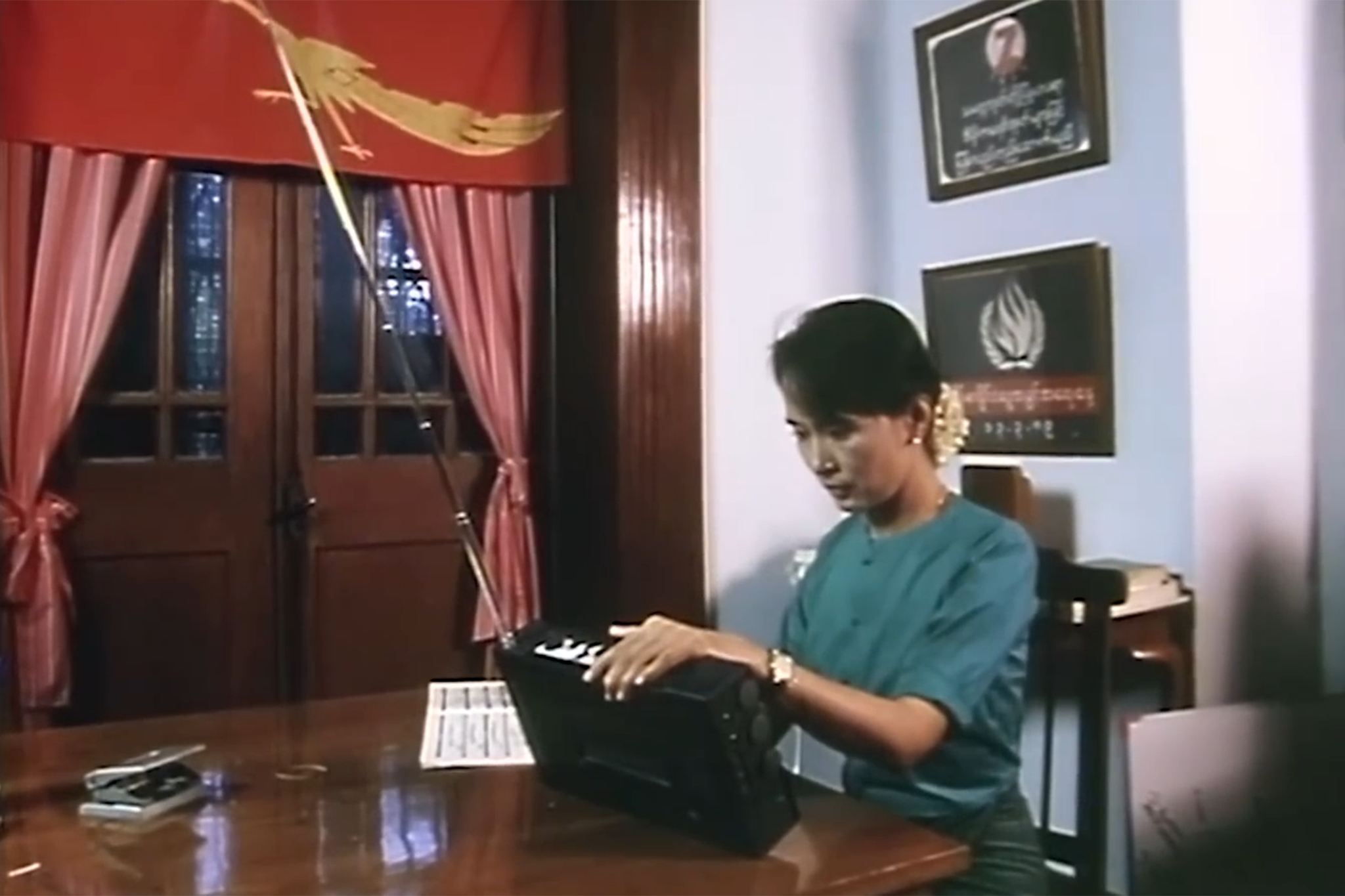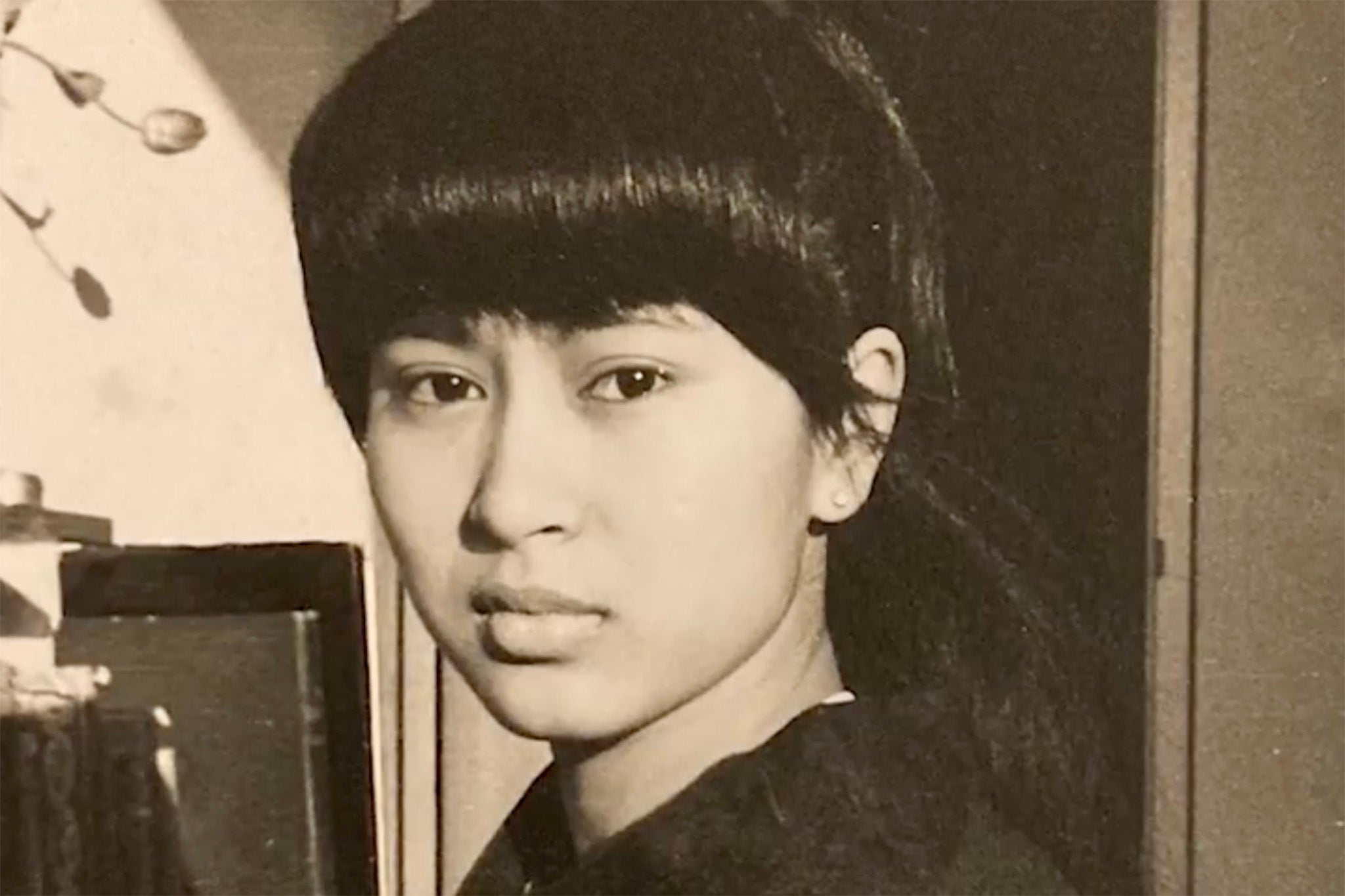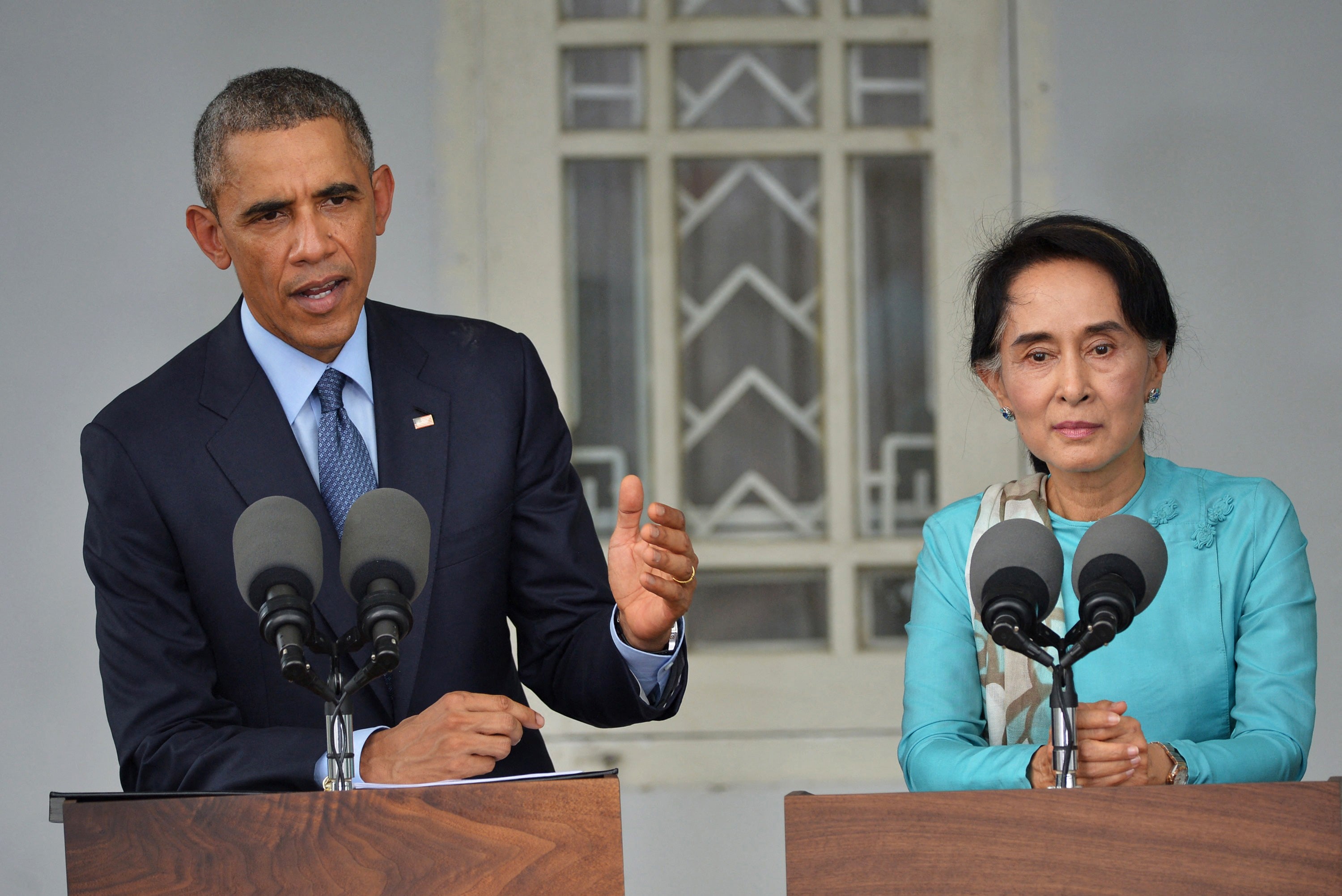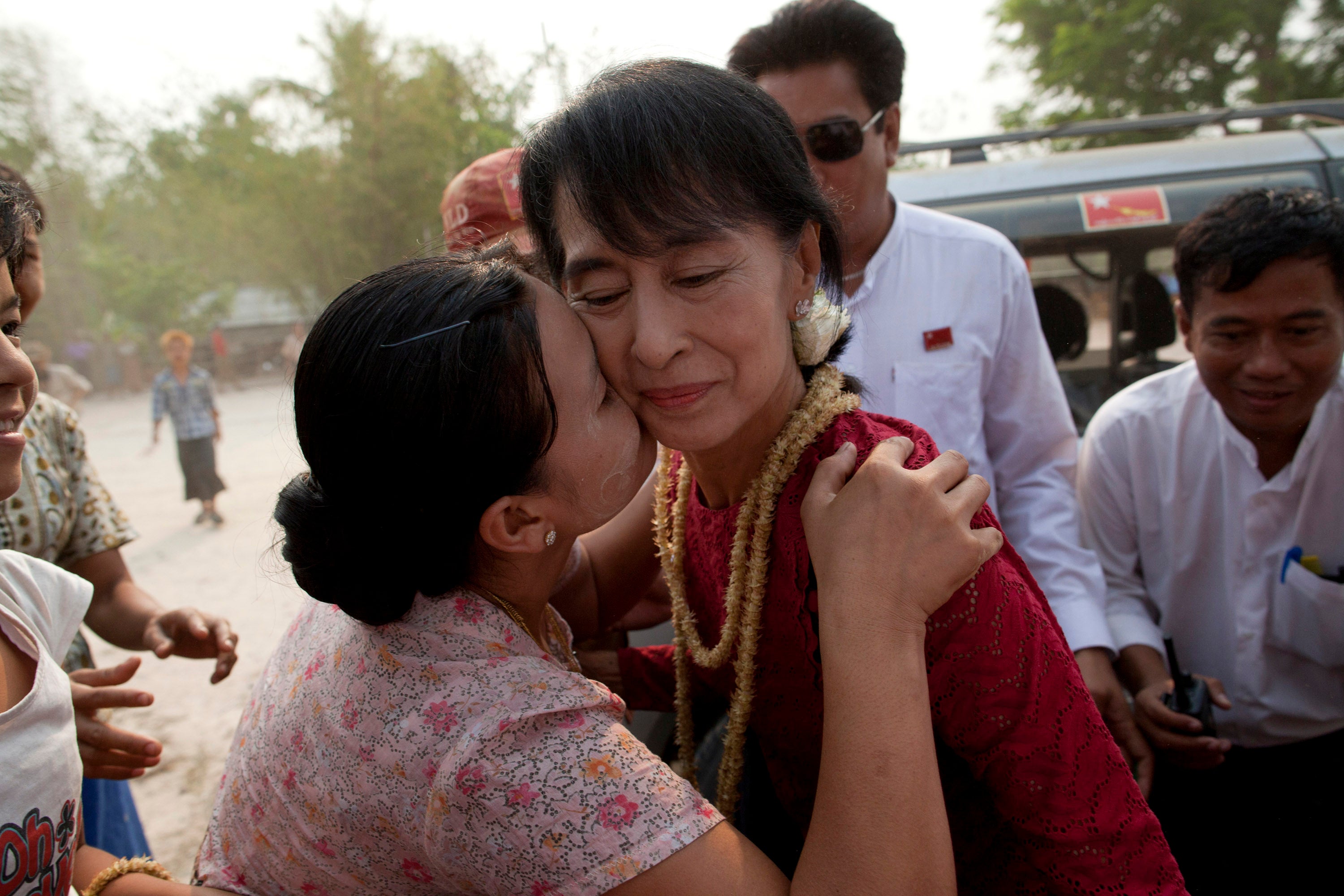Four years ago, the former British colony wedged between India and China promised so much.
A half-century of military rule had given way to a government with a popular leader elected cleanly, with a mandate to transform South-East Asia’s most impoverished country into a model of what democracy can achieve, even in countries with shallow democratic roots.
Today that leader, Aung San Suu Kyi, eighty next year, is locked in a jungle jail with no prospect of release, while the army with whom she had shared power since 2016 fights a brutal civil war on multiple fronts that has claimed thousands of lives. The country’s ten-year democratic experiment has been shot down in flames.
The immediate culprit is obvious: the Burmese military has reverted to brutal type. It is again doing what it has done for most of Myanmar’s independent history – getting rich, while keeping its people poor.
But in this Independent TV documentary, former ambassador Sir John Jenkins argues that we in the West are to blame, too.

It was Suu Kyi’s loss of support in the West which emboldened the army to do what it had been itching to do for years and dump her.
Suu Kyi’s father, Aung San, was the founder of the Burmese army, but her political career was founded on challenging its usurpation of civil power. In her very first speech she did the unthinkable and attacked the army’s then leader directly.
Over the years the army fought back by locking her up, isolating her from her family, banning her party, making any reference to her a criminal matter.
When at last in 2010, after nearly 20 years of confinement, she was freed and allowed into the political arena, it was because she had powerful friends in the West.
The Burmese military understood early on that Suu Kyi was far more than a voluble irritant. From the Nobel Peace Prize in 1991 to the honorary doctorate from Oxford University in 2011, she was, as the military’s propaganda put it, ‘the West’s poster girl.’
She was blamed for the sanctions imposed on Myanmar’s economy, for causing her country to lose face in the world’s eyes. But her popularity in the West meant she could not be ignored.

Eventually the shrewdest of Burma’s senior generals, Thein Sein, realised that he could use her reputation in the West to his own advantage: by entering politics under tight constitutional restraints, as the army’s junior partner, she could bring Myanmar in from the diplomatic cold.
With strong encouragement from President Obama, that’s what happened. In the general election of 2015 Suu Kyi became Myanmar’s first honestly elected leader since 1962.
But her triumph concealed a fatal weakness. The West had made her; so when she took what seemed to us wrong turns, it was like a protege going rogue.
When in 2017 the army launched an offensive against the oppressed Rohingya minority in Rakhine state, she failed to do what we felt she ought and denounce it.

Then in 2019 when the army was accused by Gambia of genocide, she took it into her head to go to the International Court of Justice in the Hague and defend it.
Why go out on a limb like this, on the army’s behalf?
The obvious explanation – to ingratiate herself with the army top command – is implausible: Suu Kyi has never done anything to make herself amiable to the army.
Rather, as she told the court, she felt the charges to be unjust, and duty bound as leader to say so, to defend her country. Fierce nationalism has been Suu Kyi’s motivation all her life. It trumps everything else.
But if she didn’t aim to please the generals, neither did she feel the need to consider the effect of her Hague trip on the West.

Weighing likely consequences has never been Suu Kyi’s style, which makes her success even more extraordinary. She has always been a most unpolitical, other-worldly politician.
Upshot: her reputation in the West, on the slide since 2017, plummeted to the depths. The generals took note – the Lady no longer had powerful friends to call on. Barely a year later they swept her aside, locked her up and threw away the key.
It’s a tragic story in which the West’s rush to judgement has had appalling consequences. Not for us, of course: we simply dropped Suu Kyi and her faraway country into the memory hole. But for a country which once had a future.







